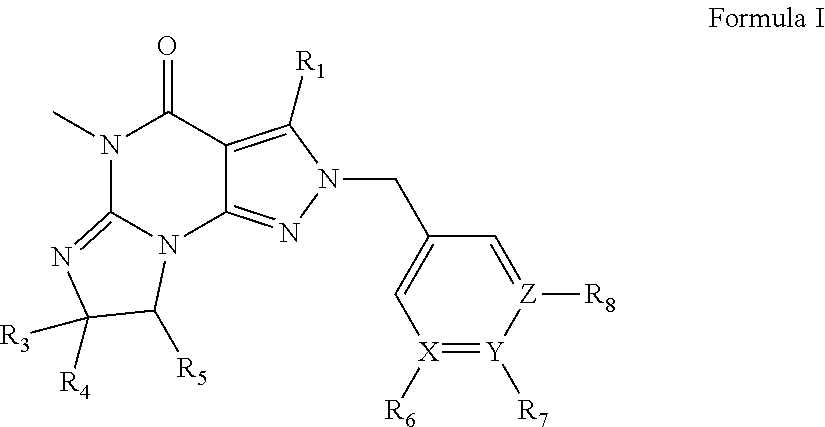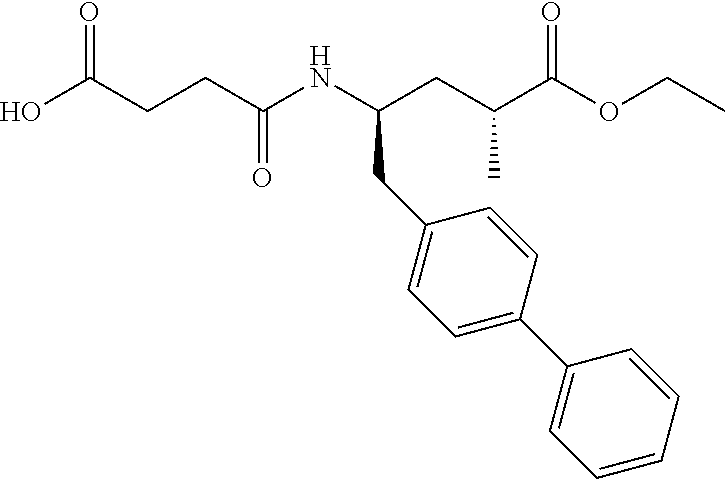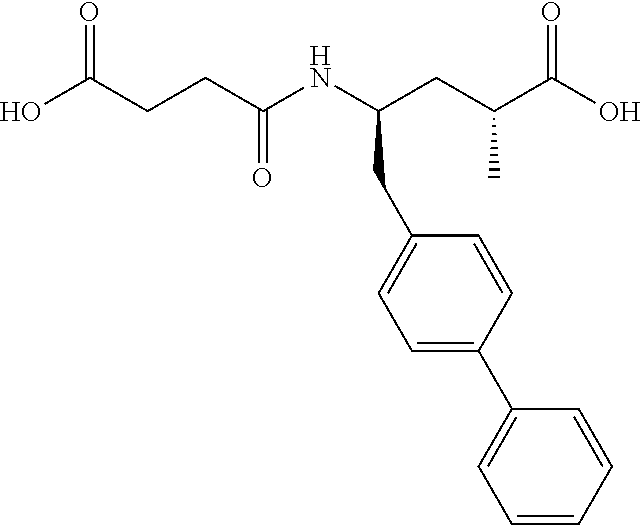Organic compounds
- Summary
- Abstract
- Description
- Claims
- Application Information
AI Technical Summary
Benefits of technology
Problems solved by technology
Method used
Image
Examples
example 1
orophenyl)amino)-5,7,7-trimethyl-2-(pyridin-4-ylmethyl)-7,8-dihydro-2H-imidazo[1,2-a]pyrazolo[4,3-e]pyrimidin-4(5H)-one
[0223]
(a) 2-(4-Bromobenzyl)-7-(4-methoxybenzyl)-5-methyl-2H-pyrazolo[3,4-d]pyrimidine-4,6(5H,7H)-dione
[0224]A suspension of 7-(4-methoxybenzyl)-5-methyl-2H-pyrazolo[3,4-d]pyrimidine-4,6(5H,7H)-dione (161 g, 562 mmol), 1-bromo-4-(bromomethyl) benzene (157 g, 628 mmol) and K2CO3 (93.2 g, 674 mmol) in DMF (800 mL) is stirred at room temperature until the reaction is complete. The reaction mixture is poured into water (5 L). After filtration, the filter cake is washed with water and ethanol successively, and then dried under vacuum to give 226 g of product (yield: 88%). MS (ESI) m / z 455.1 [M+H]+.
(b) 2-(4-Bromobenzyl)-5-methyl-2H-pyrazolo[3,4-d]pyrimidine-4,6(5H,7H)-dione
[0225]TFA (500 mL) is slowly added into a suspension of 2-(4-bromobenzyl)-7-(4-methoxybenzyl)-5-methyl-2H-pyrazolo[3,4-d]pyrimidine-4,6(5H,7H)-dione (226 g, 496 mmol) in methylene chloride (320 mL), and ...
example 2
orophenyl)amino)-5,7,7-trimethyl-2-((2-methylpyrimidin-5-yl)methyl)-7,8-dihydro-2H-imidazo[1,2-a]pyrazolo[4,3-e]pyrimidin-4(5H)-one
[0236]
(a) 7,8-Dihydro-2-(2-methyl-pyrimidin-5-yl-methyl)-5,7,7-trimethyl-[2H]-imidazo-[1,2-a]pyrazolo[4,3-e]pyrimidin-4(5H)-one
[0237]A suspension of 7,8-Dihydro-5,7,7-trimethyl-[2H]-imidazo-[1,2-a]pyrazolo[4,3-e]pyrimidin-4(5H)-one (200 mg, 0.92 mmol), 5-(chloromethyl)-2-methylpyrimidine (136 mg, 0.84 mmol) and K2CO3 (350 mg, 2.56 mmol) in DMF (6 mL) is stirred at room temperature until the reaction is complete. The reaction mixture is filtered, and the filter cake is rinsed with DMF. The collected filtrate is evaporated to dryness to give 242 mg of crude product (crude yield: 78%), which is used in the next step without further purification. MS (ESI) m / z 326.2 [M+H]+.
(b) 7,8-Dihydro-2-(2-methyl-pyrimidin-5-yl-methyl)-3-chloro-5,7,7-trimethyl[2H]-imidazo-[1,2-a]pyrazolo[4,3-e]pyrimidin-4(5H)-one
[0238]1.0M LiHMDS (1.14 mL, 1.14 mmol) in THF is added dropw...
example 3
orophenyl)amino)-5,7,7-trimethyl-2-(pyridin-3-ylmethyl)-7,8-dihydro-2H-imidazo[1,2-a]pyrazolo[4,3-e]pyrimidin-4(5H)-one
[0240]
[0241]The synthesis method is analogous to Example 2 wherein 3-chloromethyl pyridine is added in step (a) instead of 5-(chloromethyl)-2-methylpyrimidine. The final product is obtained as a formate salt (HPLC purity: 96%; yield: 43%). 1H NMR (500 MHz, Chloroform-d) δ 8.52-8.5 (m, 2H), 8.23 (s, 1H), 7.35 (d, J=5.0 Hz, 1H), 7.22-7.19 (m, 1H), 7.01-6.936.98 (m, 2H), 6.94-6.91 (m, 2H), 4.89 (s, 2H), 3.78 (s, 2H), 3.42 (s, 3H), 1.50 (s, 6H). MS (ESI) m / z 420.2 [M+H]+.
PUM
| Property | Measurement | Unit |
|---|---|---|
| Composition | aaaaa | aaaaa |
Abstract
Description
Claims
Application Information
 Login to View More
Login to View More - R&D
- Intellectual Property
- Life Sciences
- Materials
- Tech Scout
- Unparalleled Data Quality
- Higher Quality Content
- 60% Fewer Hallucinations
Browse by: Latest US Patents, China's latest patents, Technical Efficacy Thesaurus, Application Domain, Technology Topic, Popular Technical Reports.
© 2025 PatSnap. All rights reserved.Legal|Privacy policy|Modern Slavery Act Transparency Statement|Sitemap|About US| Contact US: help@patsnap.com



